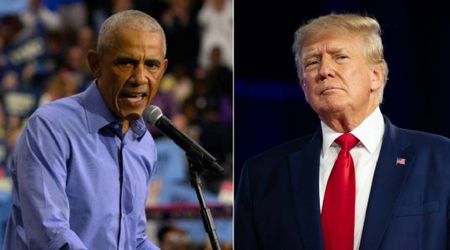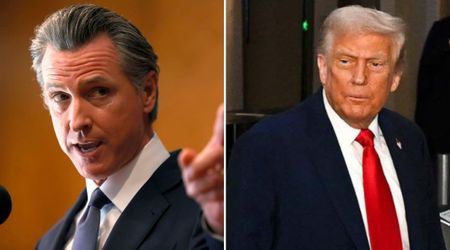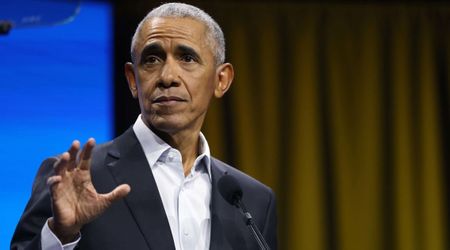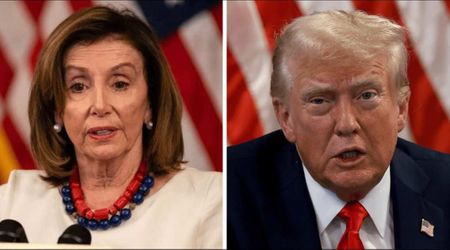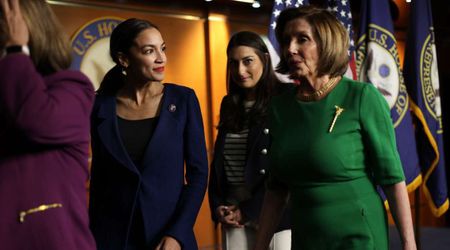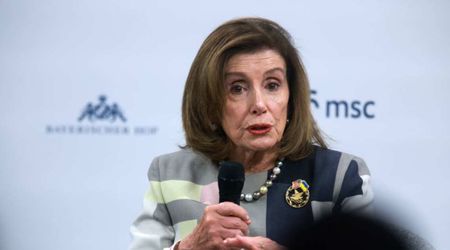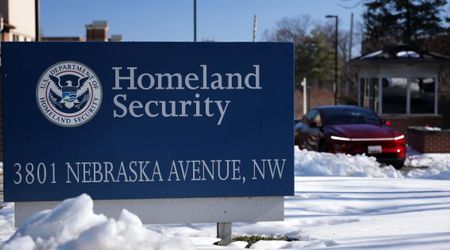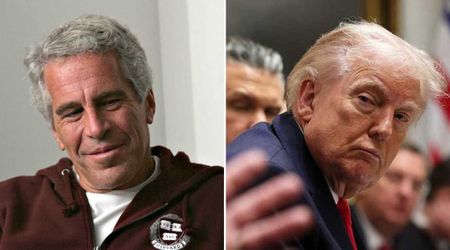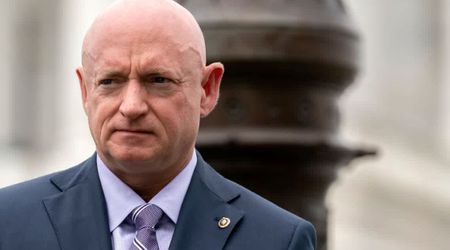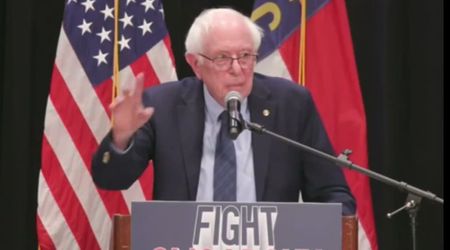6 key takeaways from the first week of Donald Trump's hush money trial
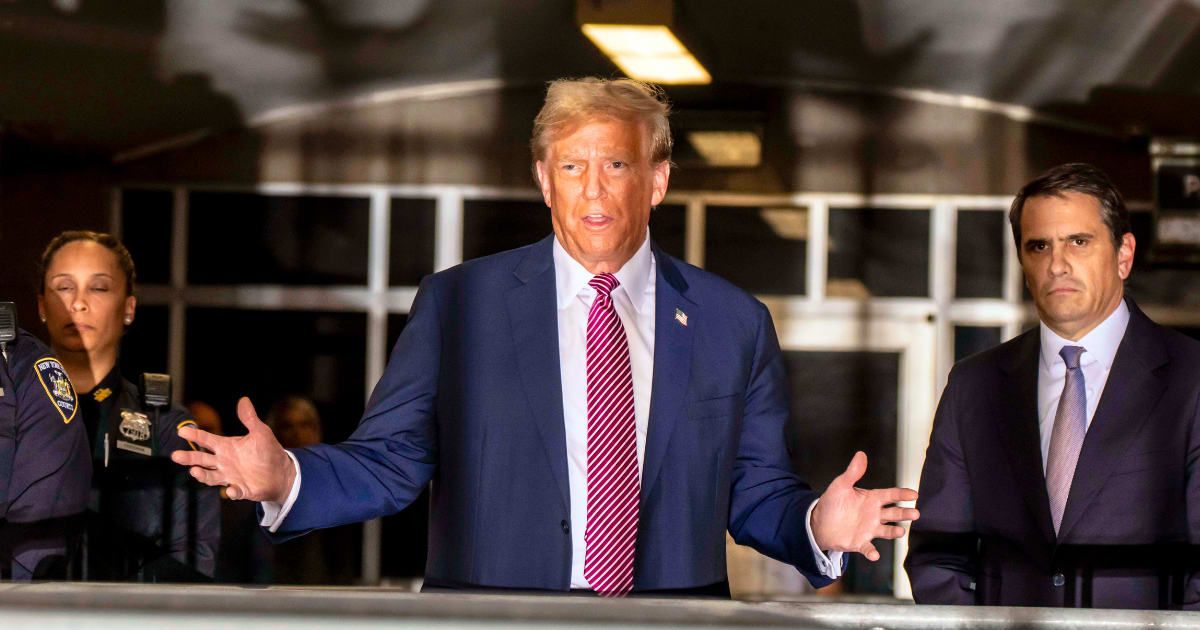
6 key highlights from the first week of Donald Trump's hush money trial

In the latest legal saga swirling around Donald Trump, a Democrat prosecutor from New York is reportedly seeking to charge the ex-POTUS with election interference over his characterization of a payment to his lawyer as a legal expense. Trump, along with several legal experts, are pushing back, decrying what they see as actual election interference manifested in a trial they perceive as baseless. The trial stems from the $130,000 payment made by Trump's former lawyer Michael Cohen to Stormy Daniels just before the 2016 presidential election to keep her silent about an alleged affair. Dubbed by Trump himself as the "Biden trials," the proceedings have dominated the news cycle of late. Trump alleges that Biden and the White House are collaborating with local prosecutors to orchestrate multiple prosecutions against him as the November election nears. Here are six key takeaways from the first week of the hush money trial:
1. Did Stormy Daniels audition for 'The Apprentice'?

While testifying on Friday, April 26, Rhona Graff, Trump’s longtime executive assistant, suggested that Daniels may have visited the New York office with intentions to audition for "The Apprentice." Graff's statement came amid her role as a conduit for communications between Trump and former National Enquirer publisher David Pecker, who testified on Thursday. Pecker highlighted Graff's pivotal role in relaying messages and orchestrating meetings with Trump, including one at Trump Tower on January 6, 2017. Graff recalled a fleeting encounter with Daniels, aka Stephanie Clifford, at Trump's offices in Trump Tower, saying, "I have a vague recollection of seeing her in the reception area." When questioned by Trump's lawyer, Susan Necheles, Graff indicated that she presumed Daniels was there to discuss potential participation in one of Trump's "Apprentice"-branded television shows. Necheles further probed whether the ex-POTUS had expressed interest in Daniels joining the show, to which Graff responded, "It was part of the office chatter." Despite these speculations, Daniels never made an appearance on the NBC program.
2. 'Catch-and-kill' was apparently a common practice for the National Enquirer

During his testimony, Pecker revealed that it was common practice for the National Enquirer to engage in "catch-and-kill" tactics. This involved paying individuals with accusations against celebrities for exclusive rights to their stories, which were then buried and not published. Pecker stated that this approach allowed the tabloid to secure exclusive interviews and stories from celebrities. He highlighted instances where negative stories about public figures like Arnold Schwarzenegger and Tiger Woods were suppressed in exchange for exclusives. Notably, during Schwarzenegger's 2003 gubernatorial campaign in California, the Enquirer apparently paid hundreds of thousands of dollars to women who claimed to have had affairs with him in order to obtain their stories.
3. Judge upholds gag order despite criticism

Juan Merchan, the judge presiding over the trial, has faced scrutiny due to his political affiliations and familial ties. Not only has the judge donated to Democratic causes, but his daughter has also worked with Democratic candidates who openly oppose Trump. Despite calls for the judge to recuse himself from the case, these requests have been ignored. "45th President Donald J Trump is again the Republican Nominee for President of the United States, and is currently dominating in the Polls. However, he is being inundated by the Media with questions because of this Rigged Biden Trial, which President Trump is not allowed to comment on, or answer, because of Judge Juan Merchan's UNPRECEDENTED AND UNCONSTITUTIONAL Gag Order," wrote Trump in a Truth Social post on Friday. He added, "His opponents have unlimited rights to question, but he has no right to respond. There has never been a situation like this in our country's history, a candidate that is not allowed to answer questions."
4. What is Trump's crime?

District Attorney Alvin Bragg's trial is desperately seeking to find a crime against the former president using a "novel" legal theory that attempts to criminalize recording a payment to a lawyer as a legal expense during a campaign, as per Newsmax. Several prominent legal scholars, including Alan Dershowitz and Jonathan Turley, have stated that the first week of testimony has failed to reveal a crime Trump has committed. "No normal judge would allow this case to go forward – just as the DA's office didn't think it should go forward when Mark Pomerantz presented it," stated former Trump impeachment lawyer David Schoen this week. He added, "The question is, do we really believe if a candidate wanted to either pay extortion money or hide some fact that may be unpleasant from the public, that's really election interference? But the problem is we really don't know what they claim the charge is. Without the grand jury ever charging what that other crime is, it's impossible to defend."
5. Some believe allegations brought against Trump lack legal basis

The trial is described as one with a "moving target," with former independent counsel Sol Wisenberg highlighting that the accusations against Trump do not constitute illegal activity. According to Wisenberg, "The key problem is it is not illegal to catch and kill a story. It's not illegal to reimburse a publisher who pays that money." He explained that to convict Trump based on the latest legal interpretation, it must be proven that he conspired to "promote his own election by unlawful means." Wisenberg criticized the "theory" of labeling a payment to a lawyer as a legal expense rather than a campaign finance payment as an illegal activity, stating that it does not align with how the law is written. He concluded, "It's a very troubling case, even if they get a conviction, I think it stands a chance of being reversed on appeal."
6. Bypassing constitutional norms to target Trump

Legal experts worry that the Constitution is being sidelined in an effort to target Trump and prevent his return to the White House. Trump lamented how the right to peaceful assembly was being thrown out of the window, citing actions by Democratic leaders in New York who are allegedly keeping his supporters away from the trial due to concerns raised by a construction union about the Democrats' neglect of working-class taxpayers, as per Newsmax. Alan Dershowitz highlighted Democrats' paradoxical stance on voting rights, noting, "In order to get to where we are today, the state had to take a minor misdemeanor election filing... and then try to turn it into a state felony by invoking a federal statute which they don't even name, which they have no jurisdiction over." He stressed, "In 60 years of practicing and writing and teaching criminal law, I've never seen a case as weak as this one."

